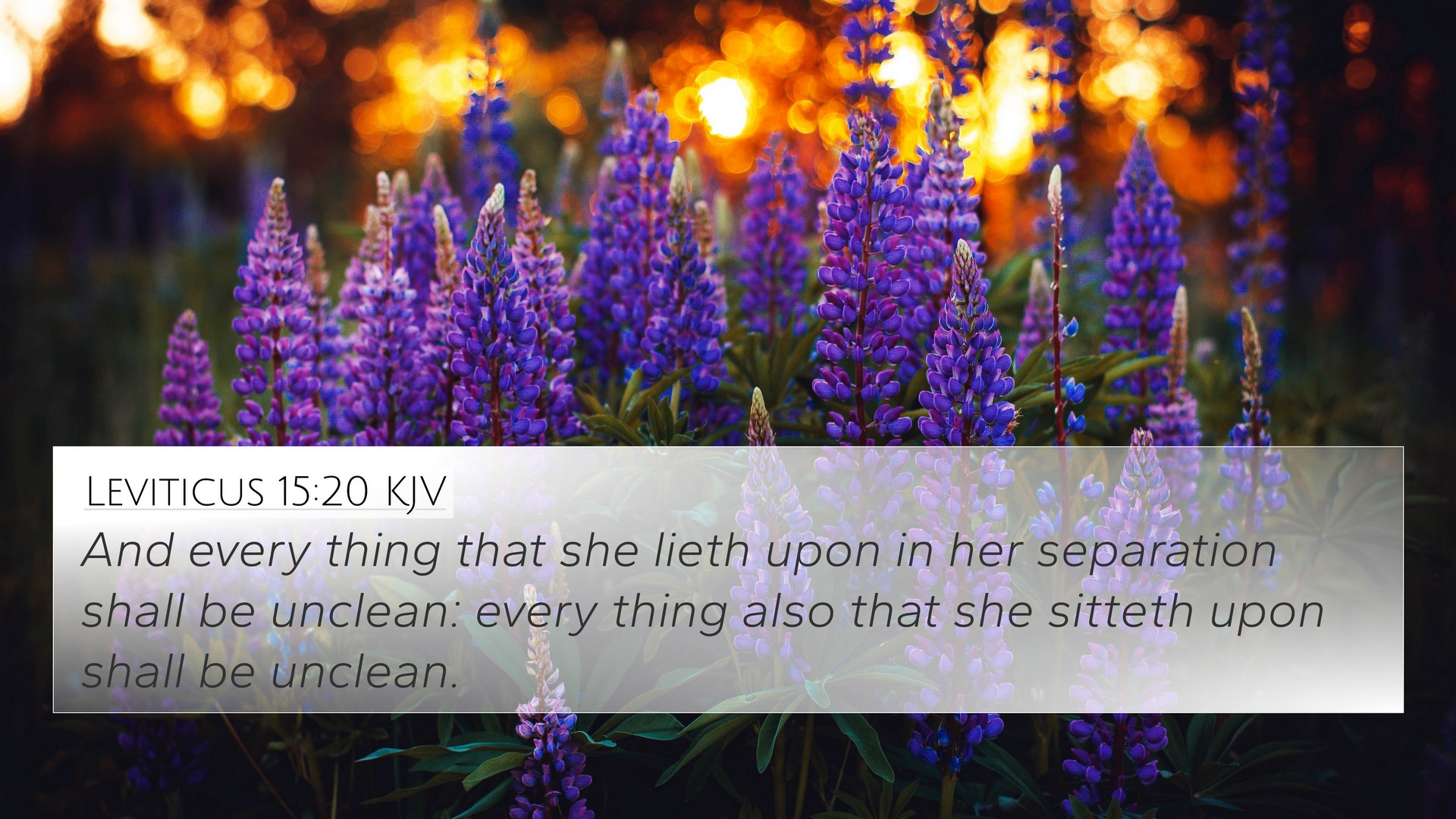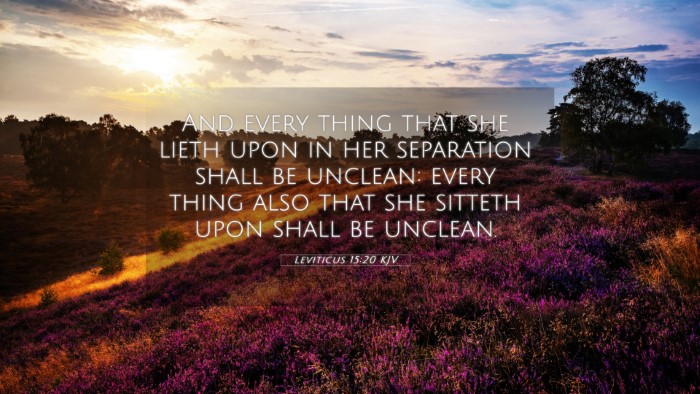Understanding Leviticus 15:20
Leviticus 15:20 states, "And everything that she lies upon in her uncleanness shall be unclean: and everything that she sits upon shall be unclean." This verse is part of the laws concerning ceremonial uncleanness, particularly relating to issues of bodily discharges.
Contextual Significance
The specified laws in Leviticus are significant in maintaining the holiness of the Israelite community. Matthew Henry points out that these instructions were designed to teach the concept of ritual purity and to distinguish between the sacred and the commonplace.
Albert Barnes elaborates that these regulations served as a reminder of the consequences of sin and the need for cleanliness, both physically and spiritually. The mention that everything a woman lies upon during her uncleanness becomes unclean emphasizes the pervasive nature of impurity during this time.
Theological Insights
From a theological perspective, Adam Clarke notes that the text reflects God’s desire for His people to be set apart and to understand the holiness required to approach Him. The physical acts of cleanliness correlate to spiritual readiness to worship.
This verse also connects to the broader theme of holiness throughout Scripture, indicating the importance of living a life that is distinct and aligned with God's commandments.
Bible Verse Cross-References
- Leviticus 15:19-30 - Discusses the detailed laws concerning a woman’s monthly impurity.
- Hebrews 13:4 - Highlights the importance of purity and the marriage bed, linking to the sanctity of physical relationships.
- 2 Corinthians 6:17 - Encourages Christians to be separate from unclean things, echoing the call for holiness.
- Isaiah 52:11 - Calls God’s people to depart from unclean things, aligning with the sentiments in Leviticus.
- 1 Peter 1:16 - States that we should be holy as God is holy, reiterating the importance of purity.
- Numbers 5:2 - Outlines the command to put unclean persons outside the camp, showing the community aspect of purity.
- Romans 12:1-2 - Encourages believers to offer their bodies as living sacrifices, holy and pleasing to God, linking to the spiritual implications of physical cleanliness.
Connections Between Bible Verses
The connections between this verse and the mentioned cross-references demonstrate a recurring theme of purity and holiness throughout the Bible. Bible verses that relate to each other serve to emphasize the ongoing dialogue about God’s requirements for those who seek to be in relationship with Him.
The notion of uncleanness detailed in Leviticus serves ultimately to foreshadow the greater spiritual truths revealed in the New Testament, such as the cleansing power of Christ, which is reflected in the cross-referencing of the Old and New Testaments.
Tools for Bible Cross-Referencing
For a deeper understanding of cross-referencing Bible texts, utilizing tools such as a Bible concordance or a Bible cross-reference guide can provide insight into how various scriptures interlink.
Cross-reference Bible study can illuminate connections, revealing thematic Bible verse connections that pertain to cleanliness, holiness, and the broader implications of sin and redemption in Christ.
Conclusion
In conclusion, Leviticus 15:20, while rooted in the specific laws of the Old Testament, extends into a larger narrative of holiness and purity that resonates throughout both the Old and New Testament scriptures. It invites readers to examine both their physical and spiritual cleanliness as they seek to live in compliance with God's expectations for His people.












